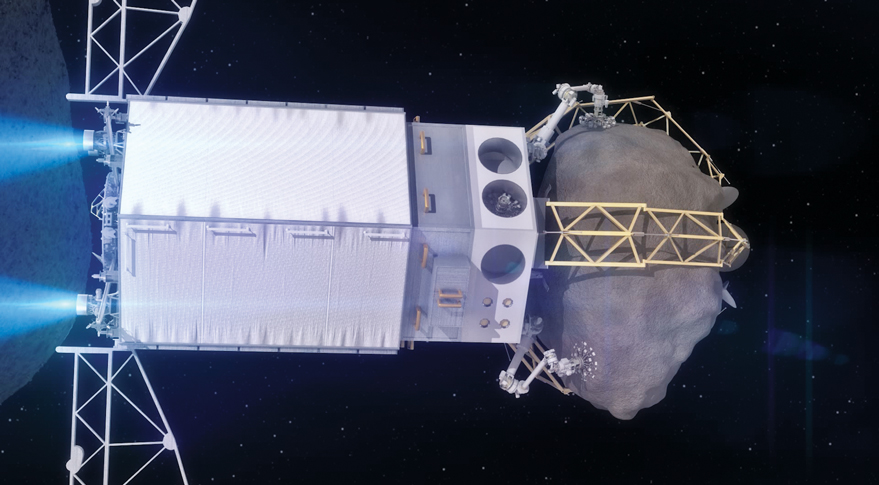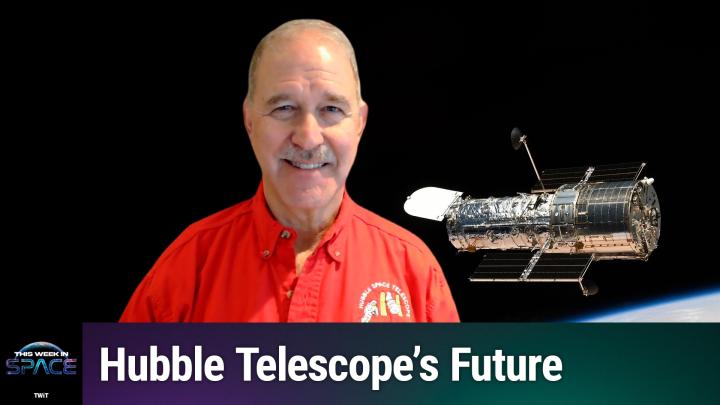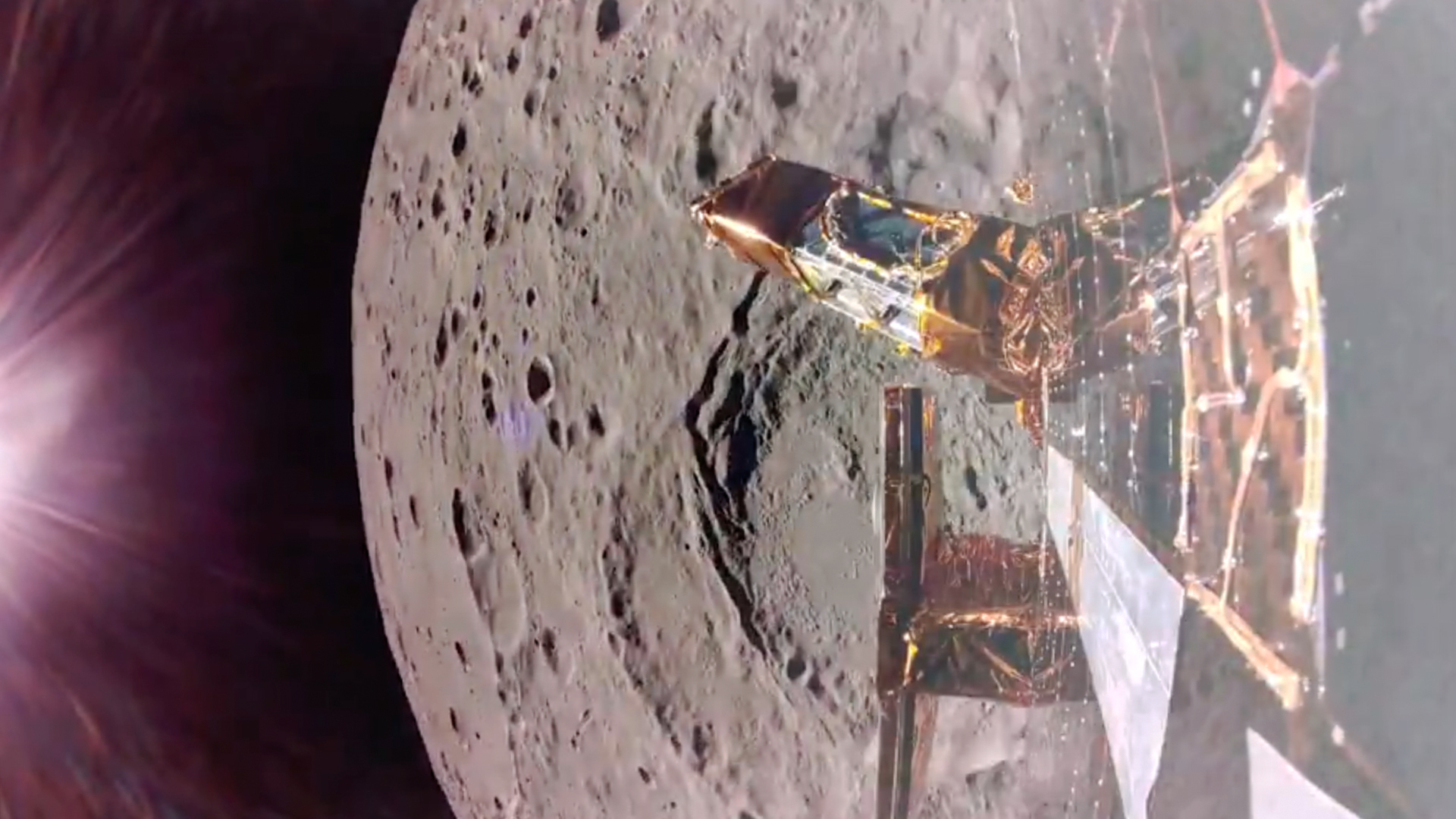Congress Questions Report on Benefits of Asteroid Redirect Mission

WASHINGTON — Two leading members of the House Science Committee called on NASA Nov. 29 to provide more details about a recent report from a science group that appeared to endorse the agency's controversial Asteroid Redirect Mission (ARM).
The letter to NASA Administrator Charles Bolden, from Reps. Lamar Smith (R-Texas) and Brian Babin (R-Texas), chairman of the full House Science Committee and its space subcommittee respectively, cautioned that the incoming administration of President-elect Donald Trump deserved more information and to be "unencumbered" by decisions made at the end of the current administration about ARM.
The letter specifically raised questions about a report released by NASA Nov. 16 that was prepared by a "special action team" of its Small Bodies Advisory Group (SBAG). It examined how the combination of the robotic spacecraft that would grab a boulder off a near Earth asteroid to bring it into cislunar space and the later crewed mission to that captured boulder could close "strategic knowledge gaps" (SKGs) previously identified by NASA as areas where the agency needs experience or new technologies to meet its exploration goals. [NASA's Asteroid Redirect Mission in Pictures]
That report concluded there were five SKGs that the baseline ARM mission could help close, from round-trip mission limits due to radiation exposure to knowledge on how to collect material from near Earth objects for analysis. An additional eight SKGs could be addressed if ARM included additional payloads or post-mission studies. Those SKGs come from a list of 27 identified by NASA for missions to small bodies, excluding those specific to the moons of Mars.
The report also noted that ARM could support scientific objectives for asteroid missions identified in the planetary science decadal survey report, an assessment of scientific goals and prioritization of proposed planetary missions. The baseline ARM mission could help answer two "important questions" from the decadal survey, involving impact histories of asteroids and study of secondary physical processes. Adding instruments to the mission or returning samples could address about a dozen additional scientific questions.
NASA used that 15-page report to conclude that there were scientific and exploration benefits to flying ARM. "This report is an important step in identifying ways that ARM will be more scientifically relevant as we continue mission formulation for the robotic and the crew segments," said Michele Gates, program director for ARM, in a Nov. 16 statement.
The letter from Smith and Babin took issue with that sweeping conclusion. They noted that SBAG itself has been critical of ARM in the past, questioning its scientific benefit. The report stated that these latest findings "should not be seen as contradicting or superseding findings by SBAG in 2013–2016, or at a later date."
Get the Space.com Newsletter
Breaking space news, the latest updates on rocket launches, skywatching events and more!
The congressmen also argued that NASA set a "bizarrely low bar" for the report by asking it to examine any roles ARM could play in closing SKGs or resolving scientific questions. NASA, they wrote, did not ask SBAG "to evaluate the optimal missions to accomplish the scientific objectives contained in the recent decadal, or how ARM would be prioritized against those alternatives."
The SBAG report and the response from Congress come as NASA prepares to make key decisions about ARM. The agency expects to award a contract in March or April to build the bus for the robotic ARM spacecraft. Gates, in the Nov. 16 statement, said selections of instruments and other payloads for the robotic spacecraft were also scheduled to be announced in the spring.
ARM, though, has long faced congressional criticism, including threats to its funding. At a Nov. 14 meeting of a NASA Advisory Council committee in Houston, Greg Williams, deputy associate administrator for policy and plans in NASA's human exploration and operations mission directorate, acknowledged the opposition ARM faced in Congress, including language in a House version of an appropriations bill for fiscal year 2017 that would prevent NASA from spending any money on ARM.
"What that was was a signal to us that we need to come talk with them and tell them why this fits and why it makes sense," Williams said of the House language. "We've had a lot of good dialogue on both the House and Senate sides as well as with the external science community." He added that he believed NASA was "making some headway" with Congress and scientists about the value of ARM.
The next administration is likely to scrutinize ARM as well. Smith and Babin said in their letter that one reason they want NASA to provide more information about the SBAG report is to ensure that new agency leadership has "honest assessments" about the value of ARM, not "farcical studies scoped to produce a predetermined outcome."
"The next Administration may find merit in some, if not all, of the components of ARM, and continue the program; however, that decision should be made after a full and fair review based on the merits of the program and in the context of a larger exploration and science strategy," they wrote.
In a Nov. 29 interview, NASA Associate Administrator Robert Lightfoot said he was confident that ARM provided value to the agency's larger exploration plans. "The teams are making great progress" on various aspects of ARM, he said, despite the presidential transition and the congressional threats to its funding. "We haven't slowed down at all."
"I'm confident that the next administration will make a decision" about ARM, he added, "but I'm also confident that we've got a good story to show them in term of why these technologies are important for us moving forward."
This story was provided by SpaceNews, dedicated to covering all aspects of the space industry.
Join our Space Forums to keep talking space on the latest missions, night sky and more! And if you have a news tip, correction or comment, let us know at: community@space.com.

Jeff Foust is a Senior Staff Writer at SpaceNews, a space industry news magazine and website, where he writes about space policy, commercial spaceflight and other aerospace industry topics. Jeff has a Ph.D. in planetary sciences from the Massachusetts Institute of Technology and earned a bachelor's degree in geophysics and planetary science from the California Institute of Technology. You can see Jeff's latest projects by following him on Twitter.










